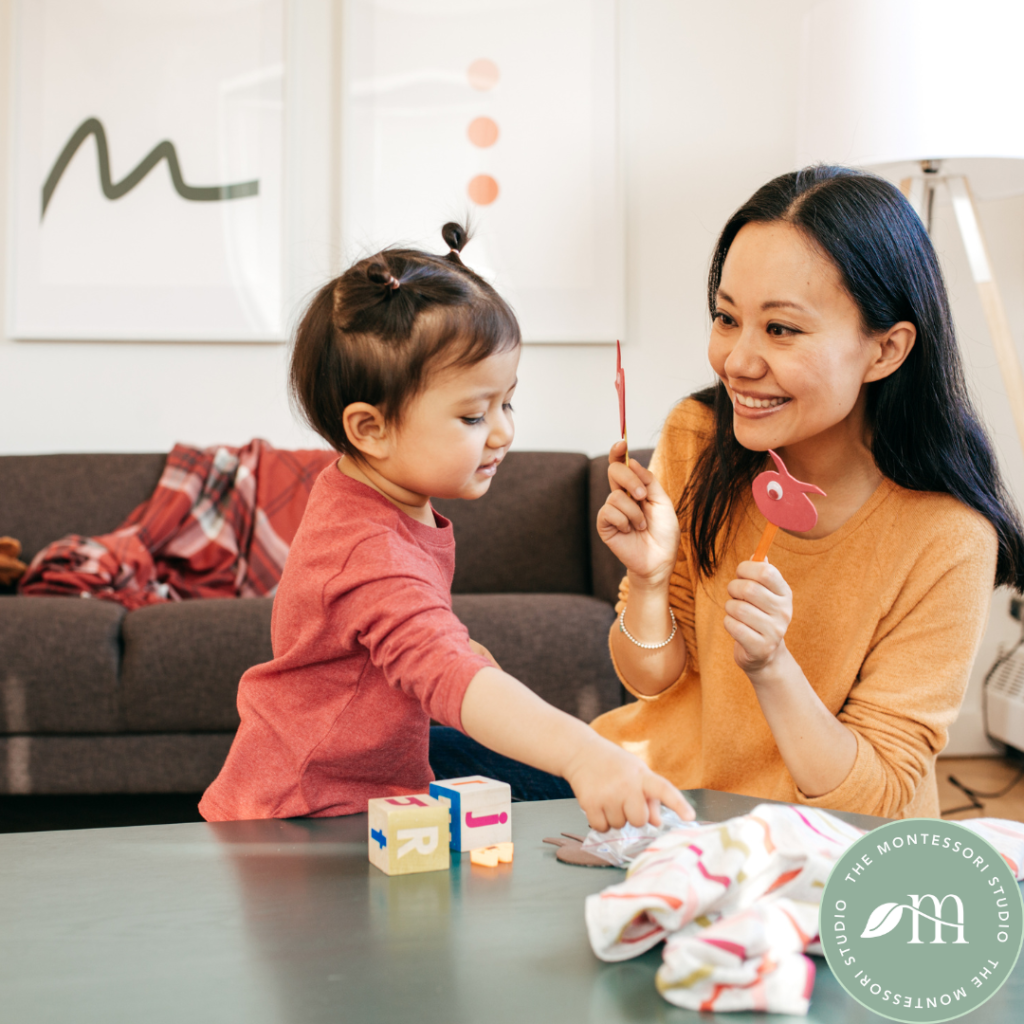
In the Montessori classroom, spoken language development is a key focus, particularly in the early years. The Montessori method emphasizes the importance of creating a language-rich environment to support children in building language skills naturally and joyfully. By nurturing a child’s ability to communicate effectively, Montessori educators lay the foundation for reading, writing, and social interaction. Parents play a crucial role in reinforcing this learning at home.

Parents are a child’s first and most important teachers. By incorporating Montessori-inspired practices, you can support your child in building language skills naturally:
Supporting your child’s language development lays the groundwork for academic success and strong interpersonal relationships. Children who feel confident expressing themselves are better equipped to advocate for their needs, collaborate with others, and engage meaningfully with the world around them. By fostering these skills early, you’re giving your child tools that will serve them for a lifetime.
Building language skills is an essential part of a child’s development. Through intentional activities in the Montessori classroom and supportive practices at home, you can nurture your child’s ability to communicate effectively and confidently. Remember, every conversation, book, and shared moment contributes to their growth and learning.
Copyright © 2024-2025 The Montessori Studio | Site Crafted by Felicity Creative